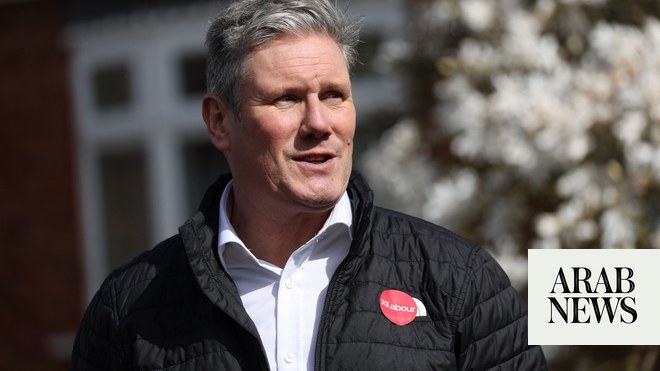
Albania has been on the radar for intrepid backpackers for some time, but this year tour operators are predicting the south-eastern Balkan country will become a mainstream holiday destination for UK travellers after a surge in bookings this January.
Interest in the country has been gradually building over the past decade as it has slowly opened up after a 44-year dictatorship that ended in 1985. Tour operators have seen a notable increase in bookings for 2022 as Albania extends its appeal to people seeking beautiful beaches and landscapes as well as interesting culture and history at a lower price than neighbouring destinations.
“Albania is one of those small and diverse destinations that can offer a bit of everything to everyone, similar to Montenegro or Slovenia,” said Tine Murn, a co-founder of New Deal Europe, a marketing agency for Balkan tourism.
He said Albania appealed because it was a “Mediterranean undiscovered gem” and “still holds a sense of the exotic, even though it is geographically very close”.
This was especially appealing at the moment while people were reluctant to travel long haul owing to the pandemic, not least because Albania has had very low Covid infection rates and no restrictions for most of the pandemic, he said.
Albania’s national tourism agency sees the UK as “an emerging growing market” and has actively promoted tourism in recent years. The country is also becoming much easier to travel around as the standard of its accommodation has improved and spending on infrastructure has increased, with a new road connecting the eastern mountains with the western coastline due to open this year.
The UK’s large Albanian diaspora and vocal celebrity champions such as the Southampton footballer Armando Broja and the pop stars Dua Lipa and Rita Ora have further helped raise the country’s profile.
Flights from the UK to the capital, Tirana, are increasingly available and in demand. The bookings website Skyscanner said it had seen a 48% increase in bookings to Albania compared with 2019, reflecting interest in “less popular destinations which are traditionally considered off the beaten track”. Average bookings were for 2.1 people, suggesting mostly couples and friends are booking at present.
However, Elton Caushi, who runs the Tirana-based tour operator Albanian Trip, said visitors had “significantly shifted” in recent years from backpackers to families, especially from EU countries, and British families were now increasingly visible.
“Croatia came on to the map at the end of the ex-Yugoslavian conflicts, Bulgaria and Romania surprised Europe with their beauty and history when they became part of the EU, and now the continent is eager to discover more. The day has come for one of the very last secrets of Europe,” he said.
Zina Bencheikh, the managing director for Europe at Intrepid Travel, said there been an increase in bookings this year partly due to the fact Albania offers adventure without the carbon footprint of a long-haul flight, as people were “more conscious than ever of the environmental impact of their holiday”.
Wild Frontiers, one of the first operators to launch tours in Albania, said inquiries for its week-long guided trips – the only ones it offers below £1,000 – were up 30% on last January. Its founder, Jonny Bealby, said the country was “set to boom” in the coming years.
He said Albania had come a long way since the Communist era. He recalled that when he first started running trips in the country 12 years ago, tourist infrastructure was completely absent. Instead, he relied on a Channel 4 News fixer who had worked on the Balkan wars to help him organise accommodation and transport.
He sees Albania as part of a new wave of destinations, including Georgia, Slovakia and Pakistan, that are growing in popularity as travellers look to escape an excess tourists. “These were countries that were very niche destinations a decade ago and now they’re becoming more mainstream as people look for quirky and different places and to get away from the crowds.”
Albania’s historical highlights
Delve into Albania’s rich past by visiting hilltop towns and fortresses such as Krüje, the country’s first capital, or Gjirokastër and Berat. There are also Greek and Roman ruins in Apollonia and Butrint. For insight into the country’s more recent history under the Communist dictator Enver Hoxha, explore one of the many bunkers built to protect citizens by the paranoid regime, dotted throughout the landscape.
Breathtaking landscapes
The Albanian Alps are a spectacular mountain range with excellent hiking trails that will lead you around some of Europe’s cleanest rivers, remote villages and stunning views. Albania also has several large lakes – Ohrid, Prespa and Shkodra – to explore. A new road, Arber, is opening in 2022 that will connect the west and east sides of the country and the traditional heartland in the mountains with its more modern coastline.
A vibrant capital city
There’s plenty to see and do in Tirana, which is safe, walkable and feels buzzy without being overrun by tourists. There’s a thriving bar and restaurant scene, especially in the Blloku district, and plenty of museums to visit. Tirana is the European Youth Capital for 2022 and will host a programme of arts and culinary events, and concerts by Dua Lipa and Rita Ora.
Beautiful coastline
Like other Adriatic nations, Albania has a long and beautiful stretch of coastline with turquoise sea and lovely beaches, and with fewer crowds there is more likely to be ample space for your towel, too.
Compelling culture
Albania has developed a distinctive culture after being isolated from other European countries for so long, partly due to its mountain range, which kept outside influence at bay. Albanian cuisine is a surprising blend of Mediterranean and Middle Eastern flavours based on high-quality produce, often sourced from chaotic local bazaars. The country is also an increasingly popular destination for music festivals, including the Unum electronic music festival.
This article was amended on 29 January 2022. An earlier version said a new road is due to open this year connecting the western mountains with the eastern coastline; that should have said eastern mountains and western coastline.












